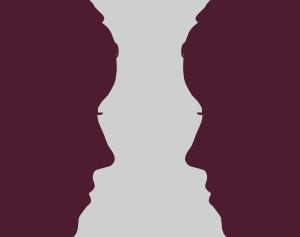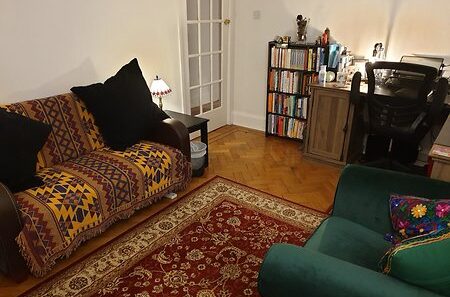I offer 2 different kinds of group therapy; Psychotherapeutic based and CBT based. I explain more about each below.
“Members of a cohesive group feel warmth and comfort in the group and a sense of belongingness; they value the group and feel in turn that they are valued, accepted, and supported by other members.”
― Irvin D. Yalom
Psychotherapeutic Based Group Therapy
Psychotherapeutic based group therapy is a useful way for people who share a common problem to get support and advice from each other.
While a group may seem a bit intimidating at first, I have found from running therapeutic groups that once people overcome this worry they really benefit from meeting and sharing with others in the group. It can help you realise you’re not alone in your experiences.
The group will look at how the past is relevant to the present and I will guide you through this process. This type of therapy is concerned with how things are here and now. It is not possible to prevent pain and trouble in the future but we can build up emotional and mental resilience to become more able to cope with the problems and frustrations of life.

“There is nothing inhuman, evil, or irrational which does not give some comfort, provided it is shared by a group.”
― Eric Fromm
How does Psychotherapeutic based group therapy work and how is it different from individual therapy?
The central process of psychotherapeutic based group therapy is for each member to fully participate in the group dynamic, which is vital to yours and other members’ treatment. Whilst it can be difficult to talk and think about emotional problems, the group will give you the unique experience to share and process your difficulties in a safe and contained environment.
I will work with the group to help you develop an understanding of each person’s mind and personal situation. Each individual brings with them their own history and character, which contributes to the group’s dynamic.
Understanding this dynamic can reduce confusion between how we are both similar and different to other people. During the group you are exposed to different points of view and have the opportunity to learn from others as you receive feedback and support.
Psychotherapeutic based group therapy works because being listened to and understood by others is itself beneficial and can be a great relief, reduce feelings of isolation and help you move towards a resolution of your current difficulties.
The shared therapeutic experience can also help you put into words the thoughts and feelings that you may never have expressed before and to gain an understanding of your sense of ‘self’ in a shared space.
In order to promote good practice and to maintain privacy and confidentiality, it is the requirement of the work that all discussions in a group are kept in the group and are not to be discussed outside the group.
What issues can Psychotherapeutic based group therapy help with?
I am experienced in helping people who have difficulties with:
Addiction and relapse prevention; Anxiety; Depression; Post traumatic symptoms; Relationship difficulties including abuse and many more.
I work with adults who are experiencing psychological distress and who are open to talking about their feelings with others. I hold group therapy with up to 4 people in the group at any given time.
Psychotherapeutic based group therapy sessions last for 60 minutes and take place every week at the same time and place. The work is open ended and the duration of the group will be determined by the members of the group. Each session costs £30 per person.
Research shows that psychotherapeutic based group therapy is effective in the treatment of both mild and complex mental health problems. Studies show that talking therapy in addition to antidepressant medication significantly reduces depressive symptoms, compared to antidepressants alone.
If you feel that you would like to enter psychotherapeutic based group therapy or if you not sure whether this is right for you, we can meet up for an initial consultation in order to discuss and understand whether you could benefit from this way of working. During this meeting I will work with you to get a picture of your difficulties and help you to think about the most appropriate treatment for you.
CBT Based Group Therapy
Cognitive Behavioural Therapy (CBT) is a talking therapy that looks at the way our thoughts and feelings affect the way we behave.
CBT is based on the idea that your thoughts, feelings, physical sensations and actions are interconnected, and that negative thoughts and feelings can trap you in a vicious cycle of behaviour. It aims to help you crack this cycle by breaking down overwhelming problems into smaller parts and showing you how to change these negative patterns to improve the way you feel.
Unlike some other talking therapy, in CBT the focus is on your current problems, rather than issues from your past. It looks for practical ways to improve your state of mind on a daily basis.

“Men are disturbed not by things, but by the view which they take of them.”
― Epictetus
How does CBT based group therapy work?
I offer a semi-structured therapeutically informed cognitive behavioural therapy based group. I believe you are the expert about yourself and that there is nothing that you will read in a book that can tell you about you. I will encourage you to listen to yourself and to listen to each other in order to become your own therapists.
My role is to provide you with the tools to achieve your set goals and to overcome obstacles but therapy will only work if you actively put the skills and techniques into practice in your own life.
On a fortnightly basis we cover a new topic giving you the opportunity to practice skills and techniques learnt in the group environment in-between sessions. Towards the end of your treatment you are supported to manage future challenges as they arise, so as to reduce the likelihood of your difficulties coming back.
This helps build your confidence and to manage without ongoing therapy. Each session follows a similar structure:
• Agree an agenda/topic for the session
• Review what you covered in the previous session
• Discuss whether you managed to put previously learning into practise or complete any homework
• Explore alternative ways to think to promote change
• Consider how you might put new ideas into practice and start to test them
At the end of the session we review what has been covered in the group and together plan how you can apply the ideas and learning from the session. This is a opportunity to open up discussions about overcoming potential challenges and obstacles
What issues can CBT based group therapy help with?
Addiction - understanding your role in your addiction; Anxiety, Stress & Panic Attacks - listening to yourself and learning how to gain control in the moment; Depression - building structure into your life; Obsessive compulsive disorder – challenging your existing beliefs; Phobias (including social phobia) - understanding your fear and gaining courage; Relationship difficulties - seeing yourself and others in a different way
I work with 4 adults at a given time.
Each session will last for 2 hours and costs £30 per person. CBT based group therapy takes place over 12 sessions with group members making a commitment to attend all sessions.
The first 10 sessions take place weekly, with the last 2 sessions spread out over 4 weeks in order to give you a chance to put what you have learnt into practice. Additional sessions can be arranged as necessary.
Research has shown that cognitive behavioural therapy (CBT) can be as effective as medication in the treatment of some mental health problems. CBT can also be completed over a relatively short period of time compared to other talking therapies. However to benefit from CBT you need to commit yourself fully to the process. A therapist can help and advise you, but they can’t make your problems go away without your full co-operation.
If you are unsure whether this is the right route for you to take, we can meet up for an initial consultation where we can discuss and gain a shared understanding of your difficulties and to identify whether this is the right approach for. I would be interested to know how your current difficulties developed.
Although cognitive behavioural therapy tends to focus on the here and now, you will be asked questions about your background and earlier experiences in order to gain an understanding as to how they affect you now. I would also be interested to know what has helped before now.
Get in touch
Please contact me on 07903 427 496 and leave a voice message.
Alternatively, you can send me an email through my contact form and I will respond back to you within 24 hours.
All contact is strictly confidential and uses secure phone and email services.
